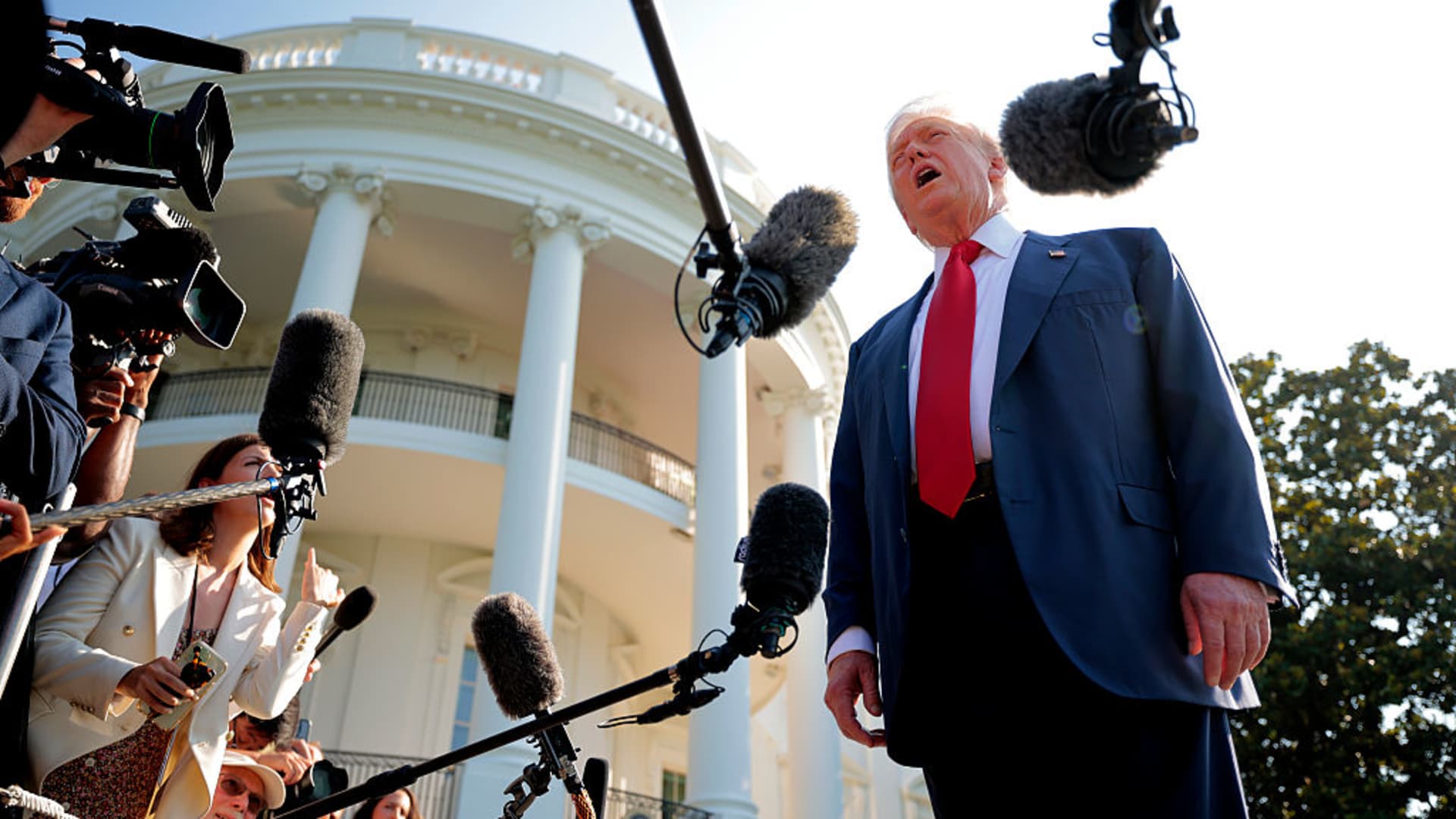U.S. President Donald Trump talks to reporters as he departs the White House on July 25, 2025 in Washington, DC. Trump is traveling to his Balmedie golf courses in Scotland this week.
Chip Somodevilla | Getty Images
President Donald Trump said the administration is considering a rebate for some consumers from revenue raised by higher tariffs on U.S. trade partners.
When asked by a reporter on Friday at the White House about a possible rebate for Americans from tariff revenue, Trump said: “We’re thinking about that. We have so much money coming in, we’re thinking about a little rebate.”
“The big thing we want to do is pay down debt,” Trump said. “But we’re thinking about a rebate.”
“A little rebate for people of a certain income level might be very nice,” he said.
It’s unclear whether a rebate could happen without Congressional approval. If enacted, it’s unknown whether the rebate would come via stimulus checks or another form of tax relief, experts say.
More from Personal Finance:
Student loan forgiveness may soon be taxed again
What the Fed’s interest-rate decision could mean for your money
How to lower capital gains on your home sale as Trump eyes ending the tax
“It’s kind of unlikely that they would go ahead and do that,” said Tax Foundation senior economist Alex Durante. “But I wouldn’t put anything past this administration.”
The Treasury Department reported an unexpected surplus for June, with a boost from tariff revenue. Customs duties totaled roughly $27 billion for the month, compared to $23 billion in May. The duties reflect a 301% gain from June 2024.
I would prefer that the revenue was used for deficit reduction rather than just cutting checks to people.
Alex Durante
Tax Foundation senior economist
Trump’s rebate idea comes as a chorus of lawmakers and policy experts voice concerns about the federal budget deficit.
“I don’t think [a rebate] would be particularly good policy,” Durante said. “I would prefer that the revenue was used for deficit reduction rather than just cutting checks to people.”
Enacted in early July, Trump’s “one big beautiful” tax-and-spending package could add an estimated $3.4 trillion to the deficit through 2034, according to a conventional score released by the Congressional Budget Office this week.
Rebates could ‘put upward pressure on prices’
The motivation for sending the direct payments would be different than they were during the Covid pandemic, when many households were losing income or unable to work, said Joseph Rosenberg, senior fellow at the Urban-Brookings Tax Policy Center’s tax and income supports division.
Now, the federal government is imposing tariffs that will cost U.S. households, and this would be a way of helping those individuals and families, Rosenberg said.

Because Congress just passed the very expensive “big beautiful” budget and tax legislation, rebates to individuals could exacerbate the effects on the federal budget deficit, he said.
The rebates would reinforce the inflationary effects of the tariffs that already exist, Rosenberg said.
“People will go out and spend some of that money, and that would further put upward pressure on prices and probably magnify inflationary effects,” Rosenberg said.
Pandemic-era fiscal stimulus contributed to an increase in inflation of about 2.6 percentage points in the U.S., according to 2023 research from the Federal Reserve Bank of St. Louis.





